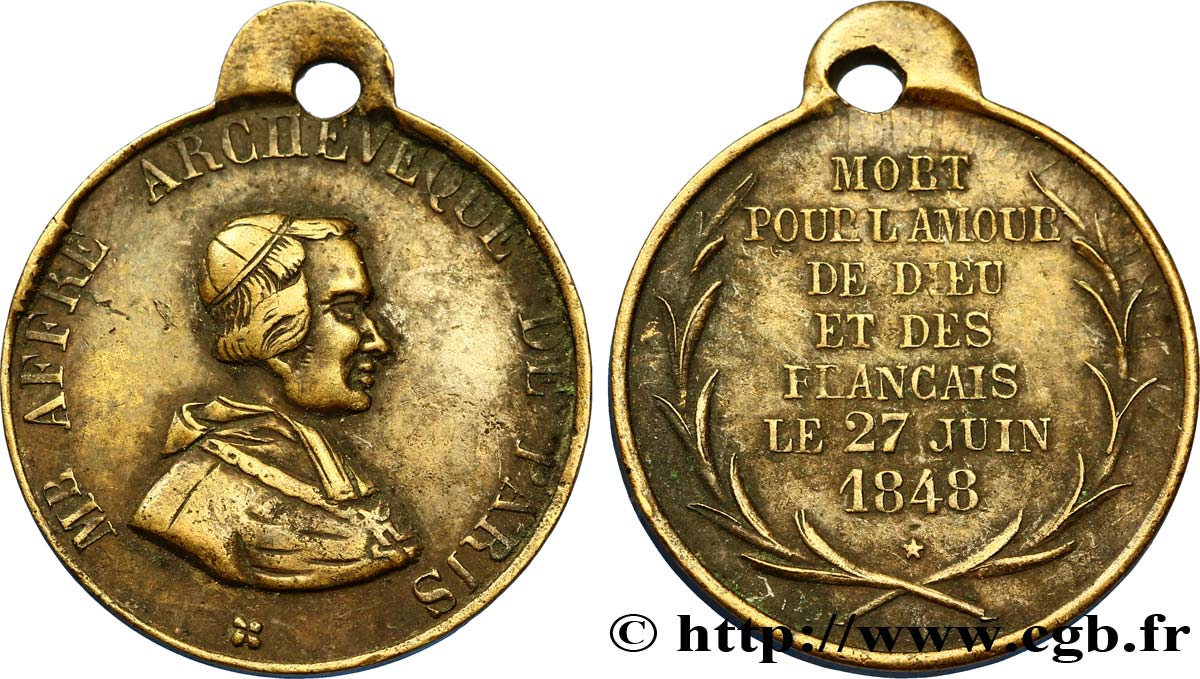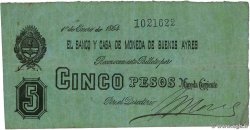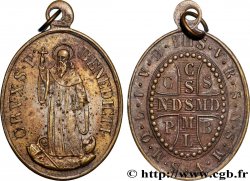E-auction 148-87808 - fjt_309309 - DEUXIÈME RÉPUBLIQUE Denys Auguste Affre, archevêque et martyr 1848
Devi Sign-in ed essere un offerente approvato fare un'offerta, Login per fare offerte. Conti sono soggetti ad approvazione e di approvazione sono raggiunti entro 48 ore. Non aspettare fino al giorno di una vendita si chiude per registrarti.Confermando la tua offerta su questo oggetto ti impegni ad un contratto legalmente vincolante per l'acquisto di questo prodotto e fare clic su «offerta» costituisce accettazione dei termini di utilizzo de e-auctions cgb.fr.
Offerta deve essere collocato in euro gli importi interi vendita only.The si chiuderà al momento sulla descrizione dell'oggetto, eventuali offerte pervenute al sito dopo l'orario di chiusura non verranno eseguite. Volte transmition possono variare e le offerte potrebbero essere respinto se si attende per gli ultimi secondi. Per ulteriori informazioni ckeck le FAQ.
SENZA COSTI PER GLI ACQUIRENTI.
SENZA COSTI PER GLI ACQUIRENTI.
| Valutazione : | 15 € |
| Prezzo : | 17 € |
| Offerta maxima : | 17 € |
| Data di fine vendita : | 15 febbraio 2016 19:08:00 |
| partecipanti : | 4 partecipanti |
Tipo : Denys Auguste Affre, archevêque et martyr
Data: 1848
Metallo : ottone
Diametro : 22 mm
Asse di coniazione : 12 h.
Orlo : lisse
Marchio : sans poinçon
Grado di rarità : R2
Diritto
Titolatura diritto : MGNEUR AFFRE ARCHEVEQUE DE PARIS.
Descrittivo diritto : Son buste à droite.
Rovescio
Titolatura rovescio : MORT POUR L’AMOUR DE DIEU ET DES FRANÇAIS LE 27 JUIN 1848.
Descrittivo rovescio : Entre deux palmes.
Commento
Cet archevêque eut un destin tragique, nous raconte wikipedia “ Pendant les insurrections de juin 1848, il crut que sa présence près des barricades pût être un moyen de ramener la paix. Il en fit part au général Louis Eugène Cavaignac, qui le mit en garde contre les dangers qu’il courrait. « Ma vie, répondit-il, a peu de valeur, je la risquerai volontiers. »
Le 25 juin, les tirs ayant cessé à sa demande, il apparut sur la barricade à l'entrée du Faubourg Saint-Antoine, accompagné par M. Albert, de la Garde Nationale, habillé comme un ouvrier et arborant une branche verte en signe de paix, et par Pierre Sellier, un domestique qui lui était dévoué. Ses deux vicaires généraux, Antoine Jaquemet et Jules Ravinet, futurs évêques de Nantes et de Troyes, sont également présents sur les lieux mais auraient été séparés de lui dans la confusion générale.
Il fut accueilli dans la stupeur, mais à peine eut-il prononcé quelques mots qu'un coup de feu (par accident ?) partit des lignes de la Garde nationale et relança les hostilités. L'archevêque fut touché par une balle perdue (sans qu'on ne sache avec certitude, aujourd'hui encore, de quel côté celle-ci provenait),"on a tout lieu de croire qu'il a été victime d'un accident, et non d'un assassinat", écrivait le National. On l'amena au presbytère de Saint-Antoine, et il fut ramené le lendemain au palais épiscopal, où il mourut le 27 juin, vers 4 h 30 du matin2. Ses dernières paroles furent une citation de l'Évangile de Jean suivie d'un appel à la paix : « Le bon pasteur donne sa vie pour ses brebis, que mon sang soit le dernier versé »3. Le lendemain l'Assemblée nationale vota l'hommage suivant : « L'Assemblée nationale regarde comme un devoir de proclamer sa religieuse reconnaissance et sa profonde douleur pour le dévouement et la mort saintement héroïque de Monseigneur l'archevêque de Paris.
Les obsèques officielles, le 7 juillet, furent un spectacle émouvant. Certaines biographies parlent de 200 000 personnes qui suivaient le cortège. Le cœur de l'archevêque fut placé dans une urne pour être gardé dans la chapelle des Carmes.
Pour le reste de sa biographie http://fr.wikipedia.org/wiki/Denys_Affre .
This archbishop had a tragic destiny, Wikipedia tells us: “During the insurrections of June 1848, he believed that his presence near the barricades could be a means of bringing back peace.. He informed General Louis Eugène Cavaignac of this, who warned him of the dangers he was running.. \\\"My life,\\\" he replied, \\\"is of little value, I would gladly risk it. \\\"On June 25, the shooting having stopped at his request, he appeared on the barricade at the entrance to the Faubourg Saint-Antoine, accompanied by M. Albert, of the National Guard, dressed as a worker and carrying a green branch as a sign of peace, and by Pierre Sellier, a servant who was devoted to him. His two vicars general, Antoine Jaquemet and Jules Ravinet, future bishops of Nantes and Troyes, were also present at the scene but were apparently separated from him in the general confusion..
He was greeted with amazement, but he had barely uttered a few words when a shot (by accident?) was fired from the National Guard lines and the hostilities resumed.. The archbishop was hit by a stray bullet (although it is still unclear today which side it came from), \\\"there is every reason to believe that he was the victim of an accident, not an assassination,\\\" wrote the National. He was taken to the presbytery of Saint-Antoine, and the next day he was brought back to the episcopal palace, where he died on June 27, around 4:30 in the morning.. His last words were a quote from the Gospel of John followed by a call for peace: \\\"The good shepherd lays down his life for his sheep, may my blood be the last to be shed.\\\"3. The following day the National Assembly voted the following tribute: \\\"The National Assembly considers it a duty to proclaim its religious gratitude and its profound sorrow for the devotion and the holy heroic death of Monseigneur the Archbishop of Paris.
The official funeral on July 7 was a moving spectacle. Some biographies speak of 200,000 people following the procession.. The archbishop's heart was placed in an urn for safekeeping in the Carmelite chapel.
For the rest of his biography http://fr. Wikipedia. org/wiki/Denys_Affre
Le 25 juin, les tirs ayant cessé à sa demande, il apparut sur la barricade à l'entrée du Faubourg Saint-Antoine, accompagné par M. Albert, de la Garde Nationale, habillé comme un ouvrier et arborant une branche verte en signe de paix, et par Pierre Sellier, un domestique qui lui était dévoué. Ses deux vicaires généraux, Antoine Jaquemet et Jules Ravinet, futurs évêques de Nantes et de Troyes, sont également présents sur les lieux mais auraient été séparés de lui dans la confusion générale.
Il fut accueilli dans la stupeur, mais à peine eut-il prononcé quelques mots qu'un coup de feu (par accident ?) partit des lignes de la Garde nationale et relança les hostilités. L'archevêque fut touché par une balle perdue (sans qu'on ne sache avec certitude, aujourd'hui encore, de quel côté celle-ci provenait),"on a tout lieu de croire qu'il a été victime d'un accident, et non d'un assassinat", écrivait le National. On l'amena au presbytère de Saint-Antoine, et il fut ramené le lendemain au palais épiscopal, où il mourut le 27 juin, vers 4 h 30 du matin2. Ses dernières paroles furent une citation de l'Évangile de Jean suivie d'un appel à la paix : « Le bon pasteur donne sa vie pour ses brebis, que mon sang soit le dernier versé »3. Le lendemain l'Assemblée nationale vota l'hommage suivant : « L'Assemblée nationale regarde comme un devoir de proclamer sa religieuse reconnaissance et sa profonde douleur pour le dévouement et la mort saintement héroïque de Monseigneur l'archevêque de Paris.
Les obsèques officielles, le 7 juillet, furent un spectacle émouvant. Certaines biographies parlent de 200 000 personnes qui suivaient le cortège. Le cœur de l'archevêque fut placé dans une urne pour être gardé dans la chapelle des Carmes.
Pour le reste de sa biographie http://fr.wikipedia.org/wiki/Denys_Affre .
This archbishop had a tragic destiny, Wikipedia tells us: “During the insurrections of June 1848, he believed that his presence near the barricades could be a means of bringing back peace.. He informed General Louis Eugène Cavaignac of this, who warned him of the dangers he was running.. \\\"My life,\\\" he replied, \\\"is of little value, I would gladly risk it. \\\"On June 25, the shooting having stopped at his request, he appeared on the barricade at the entrance to the Faubourg Saint-Antoine, accompanied by M. Albert, of the National Guard, dressed as a worker and carrying a green branch as a sign of peace, and by Pierre Sellier, a servant who was devoted to him. His two vicars general, Antoine Jaquemet and Jules Ravinet, future bishops of Nantes and Troyes, were also present at the scene but were apparently separated from him in the general confusion..
He was greeted with amazement, but he had barely uttered a few words when a shot (by accident?) was fired from the National Guard lines and the hostilities resumed.. The archbishop was hit by a stray bullet (although it is still unclear today which side it came from), \\\"there is every reason to believe that he was the victim of an accident, not an assassination,\\\" wrote the National. He was taken to the presbytery of Saint-Antoine, and the next day he was brought back to the episcopal palace, where he died on June 27, around 4:30 in the morning.. His last words were a quote from the Gospel of John followed by a call for peace: \\\"The good shepherd lays down his life for his sheep, may my blood be the last to be shed.\\\"3. The following day the National Assembly voted the following tribute: \\\"The National Assembly considers it a duty to proclaim its religious gratitude and its profound sorrow for the devotion and the holy heroic death of Monseigneur the Archbishop of Paris.
The official funeral on July 7 was a moving spectacle. Some biographies speak of 200,000 people following the procession.. The archbishop's heart was placed in an urn for safekeeping in the Carmelite chapel.
For the rest of his biography http://fr. Wikipedia. org/wiki/Denys_Affre








 Segnalare un errore
Segnalare un errore Stampate la pagina
Stampate la pagina Condividi mia selezione
Condividi mia selezione Fai una domanda
Fai una domanda Consegnare / vendere
Consegnare / vendere
 Descrittivo
Descrittivo












